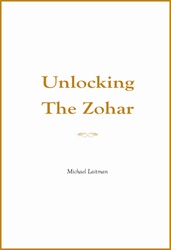The Evolution of How We Perceive Reality
The Wisdom of Kabbalah gradually leads us to a radically new way of perceiving reality.
To better understand the news that Kabbalah introduces in regard to the perception of reality, let us briefly review how science has approached this topic over the years.
The classical approach, represented by Newton, said that the world exists independently, regardless of man, and that the shape of the world is fixed. Then came Einstein, who discovered that our perception is relative and depends on our senses. In consequence, we cannot say precisely what comprises the world outside of us, as it all depends on the observer’s perception of reality.
The contemporary approach to our perception of reality is based on quantum physics, and holds that the observer affects the world, and thus affects the picture one perceives. The picture of reality is a kind of “average” between the qualities of the observer and the qualities of the object or phenomenon being observed.
Perception According to Kabbalah
To better understand the matter, let us look at a familiar example. A speaker stands in a spacious hall and lectures to an audience. They listen to his words through waves that come from the speakers into their ears, and through them to the eardrum. Then the waves traverse an electrochemical mechanism, followed by the brain’s examination to see if there is something similar in the memory, and accordingly, it decodes this electrochemical phenomenon.
Thus, according to the contemporary scientific approach, the picture of reality is depicted within us. We cannot say anything about what exists outside of us, since we never perceive what is outside of us. The wisdom of Kabbalah takes us one step forward. Thousands of years ago, Kabbalists discovered that the world actually has no picture whatsoever!
In his “Preface to The Book of Zohar,” Baal HaSulam writes, “Take our sense of sight, for example: we see a wide world before us, wondrously filled. But in fact, we see all that only in our own interior. In other words, there is a sort of a photographic machine in our hindbrain, which portrays everything that appears to us and nothing outside of us.” Baal HaSulam explains that in our brain, there is “a kind of polished mirror that inverts everything seen there, so we will see it outside our brain, in front of our face.”
We were deliberately made in a way that our senses create for us an illusory image of a world that seems to exist outside of us. This allows us to gradually study what is the real picture on the outside.
Our Perception Is Determined by Our Desire to Receive Pleasure
If we wish to advance from our present state, to expand our reality, and to know where we truly are and what for, we need only to tend to what is within us—our will. Deep inside there is the will, and it is what operates all our tools of perception, as well as our minds and our thoughts.
Sometimes, we seemingly don’t see the world. We shut ourselves within and do not pay attention to what is happening around us. But what actually happens is that our desire becomes detached, as though unconscious. Sometimes, our desire is so intense that it causes us to “devour” the whole world. And sometimes, it just quenches like a candle.
Why do people grow old? It is because they no longer want to perceive the world. It is hard for them, and as a result, their bodies stop functioning. In truth, we begin to decline, to gradually die in the middle of our lives. And yet, it is not the body, but our will that dies, losing its motivation to move onward. People who begin to evolve spiritually receive energy and the desire to advance. They are like children, always full of wishes, waking up each day with renewed vigor.
The Secret of Expanding Perception Has to Do with Connection
Our will is self-centered and hence directs us to perceive only what is good for us or what is bad for us, so we can stay away from it. The more the ego develops, and with it the mind, the more we understand, perceive, and control. Accordingly, our perception of reality expands.
Yet, however expansive, in the end our perception is very limited because it depends on the five senses that give us the sensation of physical life. Our body is no different than that of any other animal; hence, this kind of perception is defined as “perception of reality on the animate level.” Perceiving the broader reality, the one that is not limited by our egos, is precisely the subject matter of The Book of Zohar—the perception of reality on the human level.
What we perceive through our will, our memory, and our five senses is called “this world.” Because our will and our memory are only our own, we are as limited as individual cells. To feel the entire reality, the higher realm of information, we must connect to the desires of others—those who are seemingly outside of us but who are actually parts of us. In other words, to perceive the true reality we must replace our will and shift from the inner, egoistic will, to the outer one.
Through Love We Become Whole
The rule, “Love thy friend as thyself” is not a moral law that aims to force us to love other people. It is rather a means by which we connect the whole of reality to ourselves.
Usually, we love some people, are indifferent to others, and dislike others. This type of approach stems from the sensation that others are outside of us. However, when we can join those parts to us, we become whole and feel the actual reality.
Why were we created this way, detached from the true reality? It is so that we ourselves would gradually connect all these parts of ourselves. In this process, we study laws and phenomena that exist within the actual reality, and thus become equal to the Creator.”
 “To Perceive Reality in a Way Where Everyone Is a Part of You” is based on the book, Unlocking the Zohar by Dr. Michael Laitman.
“To Perceive Reality in a Way Where Everyone Is a Part of You” is based on the book, Unlocking the Zohar by Dr. Michael Laitman.


Thanks for this infinite wisdom. It has totally changed my “perception” towards myself and others